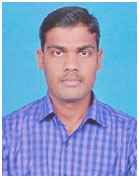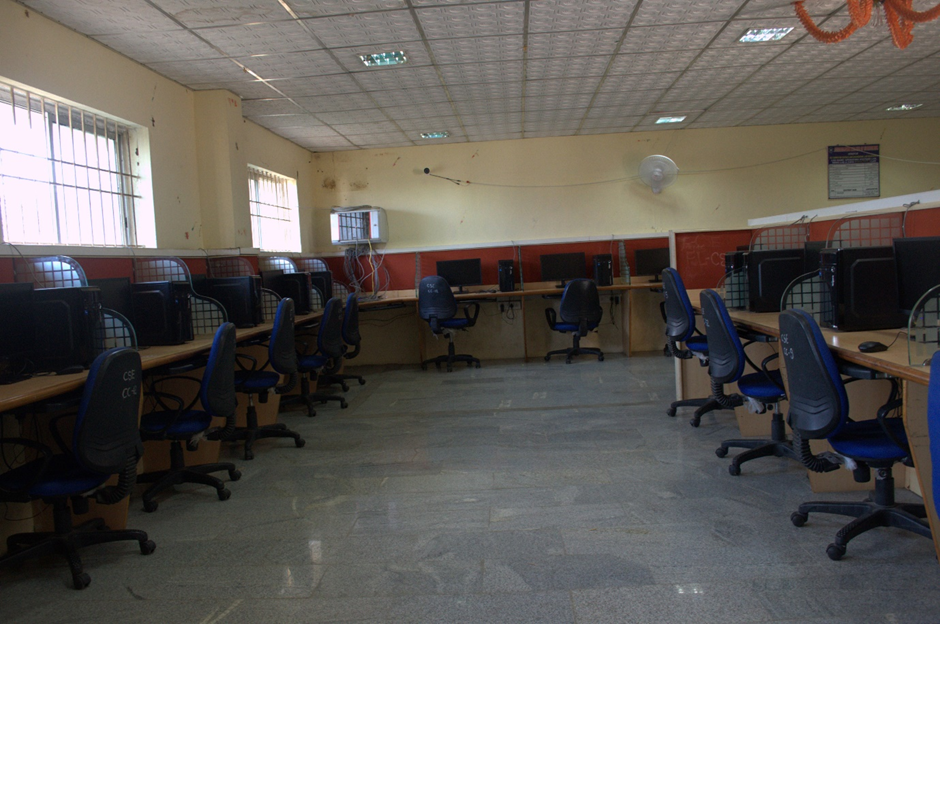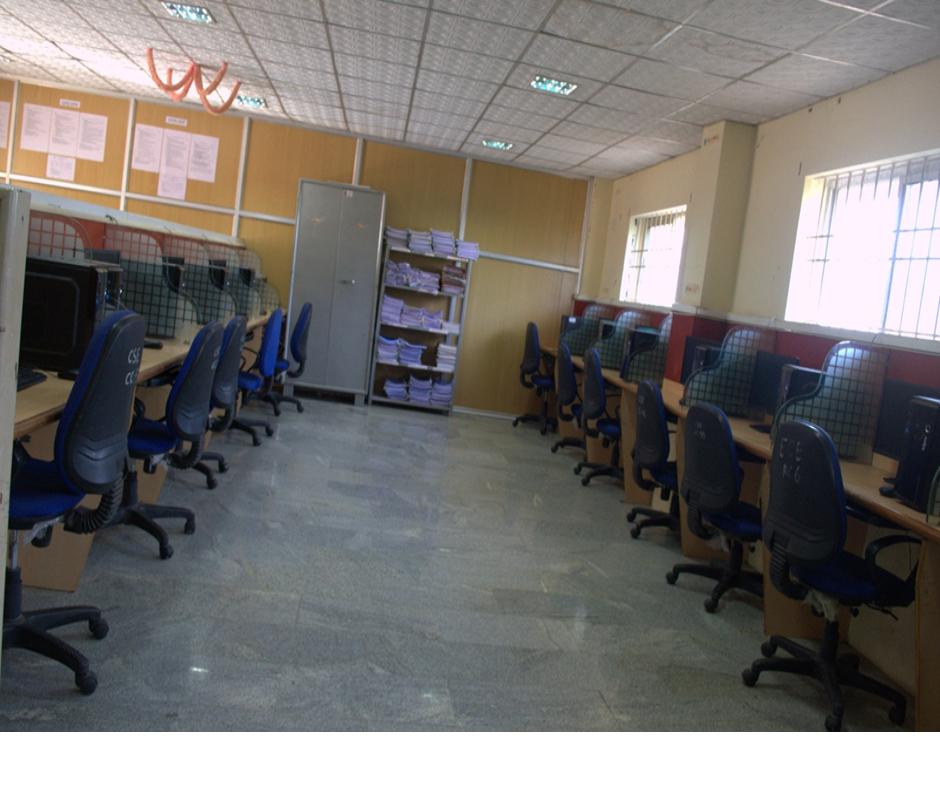- About the Department
- Vission and Mission
- HOD Profile
- Prog. Edu Objectives & Outcomes
- Laboratory
- Regulation & Syllabus
About the Department
The Department imparts best training to the students on IT (Information Technology) Engineering. The Department provides state of the art computing facilities to the students. It also promotes active industry-institute collaboration by identifying areas of interest. The department has qualified and experienced faculty members in the areas of Computer Architecture, Database Systems, Cloud Computing, Artificial Intelligence, Data Mining, Computer Networks, Software Engineering and Programming Languages (C, C++, Java, .Net). The Department with well-equipped laboratory imparts quality practical education.
Consistent with the high standard of excellence aimed by the Institution, the faculty comprises a team of carefully selected and highly qualified persons who have proven record of meritorious accomplishments to their credit. We have Doctorates and Postgraduates specialized in various disciplines who have extensive industrial and teaching experience. The staff strength is according to the norms prescribed by All India Council for Technical Education, New Delhi, Government of Tamil Nadu and Affiliated to Anna University.
Vision
Department of Information Technology will impart futuristic technical education and institution high patterns of discipline through our dedicated staff, who shall set global standards, making our students technologically superior and ethically strong.
Our mission is to educate students, so that they become enlightened individuals, improving the living standards of their families, industry and society through Information Technology. We will provide individual attention, world-class quality education and take care of character building.
HOD Profile

M. Karthikeyan, B.Tech., M.E.
M. Karthikeyan, Professor and Head of the Department of Computer Science and Engineering has 13 years of teaching experience. Her research interests are Data Mining, Cloud Computing, Computer Networks, Network Security. He has graduated from Tiruvalluvar College of Engineering and Technology, Anna University, in Computer Science and Engineering [2007]. He has obtained her Master Degree in Computer Science and Engineering from Tiruvalluvar College of Engineering and Technology, Anna University [2012].
Program and Outcomes (PO)
Engineering Graduates Will Be Able To:
- Engineering knowledge:
Apply the knowledge of mathematics, science, engineering fundamentals, and an engineering specialization to the solution of complex engineering problems. - Problem analysis:
Identify, formulate, review research literature, and analyze complex engineering problems reaching substantiated conclusions using first principles of mathematics, natural sciences, and engineering sciences. - Design/development of solutions:
Design solutions for complex engineering problems and design system components or processes that meet the specified needs with appropriate consideration for the public health and safety, and the cultural, societal, and environmental considerations. - Conduct investigations of complex problems:
Use research-based knowledge and research methods including design of experiments, analysis and interpretation of data, and synthesis of the information to provide valid conclusions.< - Modern tool usage:
Create, select, and apply appropriate techniques, resources, and modern engineering and IT tools including prediction and modeling to complex engineering activities with an understanding of the limitations. - The engineer and society:
Apply reasoning informed by the contextual knowledge to assess societal, health, safety, legal and cultural issues and the consequent responsibilities relevant to the professional engineering practice. - Environment and sustainability:
Understand the impact of the professional engineering solutions in societal and environmental contexts and demonstrate the knowledge of, and need for sustainable development. - Ethics:
Apply ethical principles and commit to professional ethics and responsibilities and norms of the engineering practice. - Individual and team work:
Function effectively as an individual and as a member or leader in diverse teams, and in multidisciplinary settings. - Communication:
Communicate effectively on complex engineering activities with the engineering community and with society at large such as being able to comprehend, write effective reports, design documentation, make effective presentations, give and receive clear instructions. - Project management and finance:
Demonstrate knowledge and understanding of the engineering and management principles and apply these to one’s own work, as a member and leader in a team, to manage projects and in multidisciplinary environments. - Life-long learning:
Recognize the need for, and have the preparation and ability to engage in independent and life-long learning in the broadest context of technological change.
Programme Educational Objectives
- PEO-I :
To excel in Information Technology programme to pursue their higher studies or to succeed in their profession through quality education. - PEO-II :
To acquire knowledge in the latest technologies and innovations and an ability to identify, analyze and solve problems in computer engineering. - PEO-III :
To become recognized professional engineers with demonstrated commitment to life-long learning and continuous self-improvement in order to respond to the rapid pace of change in Computer Science Engineering. - PEO-IV :
To be capable of modeling, designing, implementing and verifying a computing system to meet specified requirements for the benefit of society. - PEO-V :
To possess critical thinking, communication skills, teamwork, leadership skills and ethical behavior necessary to function productively and professionally.
Program Specific Outcomes
- PSO I :
An ability to apply knowledge of software development concepts to select and apply software development processes, programming paradigms, and architectural models appropriate to different applications. - PSO II :
Familiarity with various programming languages and paradigms, with practical competence in at least three languages and two paradigms. - PSO III :
An ability to demonstrate knowledge in theoretical computer science and in related areas such as algorithm design, compiler design, artificial intelligence and information security.
Laboratory
The department laboratory is equipped with 302 workstations and 7 servers with all the required software and peripherals as per Anna University syllabus, 58 Mbps Internet connectivity. Our laboratory are equipped with state of art facilities and acts as a research ground for the students of our college by providing them with the recent technology. Our laboratory has excellent facilities enabling efficient learning in areas of Operating Systems, Internet Programming, Compile Design, Software Engineering and DBMS.
Name of The Laboratory
- Problem Solving & Python Programming Laboratory
- C Programming Laboratory
- Data Structures and Algorithms Laboratory
- Object Oriented Programming Laboratory
- Database Management Systems Laboratory
- Operating Systems Laboratory
- Computer Networks Laboratory
- Full Stack Web Development Laboratory
- Web Essentials Laboratory
- Object Oriented Analysis and Design Laboratory
- Internet Programming Laboratory
- Mobile Application Development Laboratory
- Cloud Computing Laboratory
- Security Laboratory
Regulations
This Regulation is applicable to the students admitted to B.E/B.Tech. Programmes at all Engineering Colleges affiliated to Anna University, Chennai (other than Autonomous Colleges) and to all the University Colleges of Engineering of Anna University, Chennai from the academic year 2021-2022 onwards.IT Syllabus
IT Syllabus Link: regulation_2021_IT_syllabus
